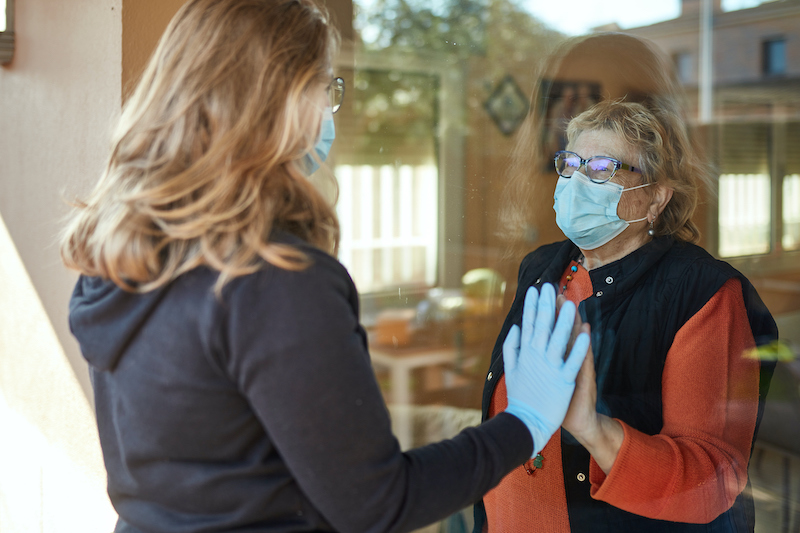
Discover tips that are helping seniors weather the pandemic.
It has been more than six months since the COVID-19 pandemic began. The restrictions that have been put in place to emphasize safety can begin to wear on us all, and while there’s a natural desire to want to “return to normal,” there is a new issue that’s having an effect pandemic fatigue in seniors.
Pandemic fatigue is a result of trying to control the many overwhelming emotions we have been enduring, such as anxiousness, fear, isolation, and despair. It’s exhausting and draining, and may display as:
- Issues with getting enough sleep and/or eating appropriately
- Trouble with focusing
- Withdrawing from those we care about
- Becoming more argumentative or having a “short fuse”
- Feelings of nervousness, edginess, and not enough motivation
- Struggling with racing thoughts
The balance between preserving the physical safety and health we achieve by self-isolating, and the emotional health we realize through socialization and participating in meaningful activities, is not very easy to navigate. We’ve provided some suggestions for helping manage pandemic fatigue in seniors.
- Accept and acknowledge your emotions. A range of feelings are completely normal in a period of time that feels anything but normal. It can be helpful to name how you are feeling – even writing it down. Then see if you can refocus your thoughts to approaches to help. For instance, if you’re feeling out of control, focus your energy on things that you can easily control.
- Improve your inner dialogue. It’s normal to wrestle with a number of negative “what if” scenarios, which result in heightened anxiety. Try integrating a positive slant to your thoughts; for instance, rather than thinking, “What if I come down with COVID-19?” tell yourself, “I’ve been doing everything I can to protect myself and stay safe.”
- Stay connected. While social distancing and staying away from one another has become the new normal, it is critical to maintain social connections in ways that are safe: telephone calls, emailing and chatting on social media, writing letters, and making use of technology for virtual get-togethers, classes, religious services, etc.
- Turn off the news. It is important to ensure you’re up to date regarding the latest recommendations, guidelines, and status of the virus, yet it is also very easy to quickly become overloaded with too much information. Try to curb your news watching to no more than an hour per day, and also make sure the source you’re gaining information from is reliable.
- Take care of yourself. Establish a routine which includes at least seven hours of sleep per night, 30 minutes of exercise daily, and a balanced and healthy diet. You will be aiding both your emotional state as well as your immune system by making good lifestyle choices.
Grace Home Care is always here to partner with you in providing dependable senior care in Topeka, KS. Our home and companion care services are delivered in the safety and comfort of home, helping older adults improve emotional, physical, and social wellbeing. Whether the need is for just a couple hours every week of respite care enabling family caregivers to rest and recharge, or as much time as needed, up through and including full-time care, contact us online or call us at 785-286-2273 to learn more about our trusted senior care in Topeka, KS.
